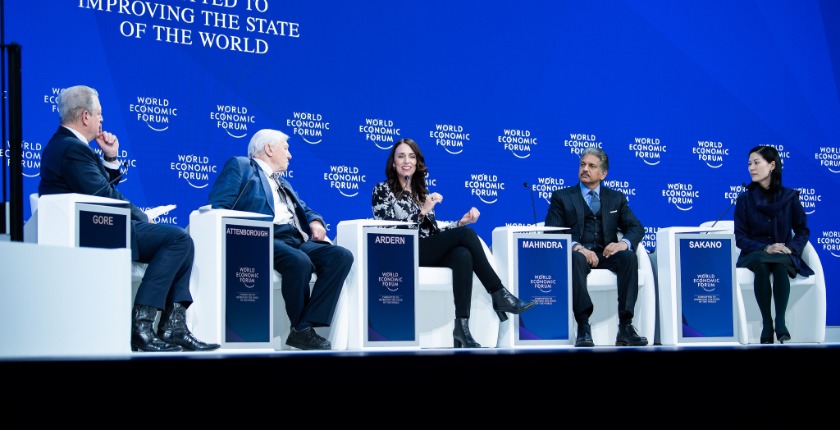
1. Leverage AI and Data
Accurate, real-time information about greenhouse gas emissions is vital to making effective policy decisions. Former U.S. Vice President Al Gore highlighted the Climate Trace project, which utilizes data from 300 satellites and 30,000 ground sensors to measure emissions from 660 million sources worldwide. Gore explained that machine learning algorithms can help pinpoint pollution hotspots and forecast how emissions might evolve, enabling faster and more targeted solutions.
Why It Matters
- Better Monitoring: Having a clear picture of emission sources allows policymakers and businesses to set more realistic goals.
- Scalable Impact: AI-driven insights can guide decision-makers across multiple sectors, from agriculture to manufacturing.
2. Upgrade Energy System Infrastructure
According to Trina Solar Co-Chair Katherine Gao Haichun, installing renewable technology like wind turbines and solar panels is only part of the equation. Strengthening grids and deploying smart infrastructure are equally important to handle fluctuating energy supply and demand.
Key Steps
- Decentralized Grids: A more localized approach can reduce transmission losses and improve reliability.
- Energy Storage: Battery technology and other energy-storing solutions stabilize power from intermittent renewables.
- Digital Tools: AI-enhanced forecasting and grid management can optimize the integration of clean energy.
3. Set Short, Hard Deadlines
Though many nations have lofty net-zero targets for mid-century, Andrew Forrest, Executive Chairman of mining conglomerate Fortescue, emphasized the need for stricter near-term deadlines. By committing to eliminate fossil fuels by the end of this decade—rather than 2050—Fortescue has motivated its 25,000-strong workforce to devise solutions, ranging from decarbonizing trains and trucks to overhauling industrial facilities.
Why Near-Term Goals Work
- Immediate Accountability: Employees and stakeholders can see tangible progress during their careers.
- Investor Confidence: Shorter timelines signal genuine commitment, possibly attracting ESG-minded investors.
4. Inspire, Don't Command
While government mandates play a role, panelists argued that personal and collective inspiration drives stronger, more enduring climate action. Haichun, for instance, credits Al Gore's advocacy for inspiring her own career in solar energy. She contends that genuine engagement—rather than top-down directives—makes people more willing to innovate and adopt sustainable behaviors.
Key Takeaway
- Broader Participation: When employees and citizens are truly motivated, they invest both creativity and resources into climate solutions.
- Long-Lasting Change: Inspired action tends to hold up better than compliance driven by regulations alone.
5. Challenge the Idea of ‘Net-Zero'
Critics like Forrest argue that "net-zero" can become a loophole, allowing companies to maintain or even expand fossil fuel use by relying heavily on carbon offsets. He contends that most carbon credits fail to deliver the promised reductions, undermining genuine decarbonization efforts.
Action Point
- Direct Reduction First: Rather than purchasing offsets, firms should focus on cutting fossil fuels outright.
- Offsets as a Last Resort: If used at all, they must be robustly verified to ensure real emissions cuts.
What's Next?
The panel's experts agree that time is running short. While global leaders increasingly recognize environmental threats—four of the top five long-term risks in the WEF's Global Risks Perception Survey are environmental—concerted action remains uneven. Some progress is evident: renewable energies are surging, and more organizations are stepping up with pledges to slash their carbon footprint.
Yet, the panel underscored that reversing climate trends requires swift, coordinated measures from governments, businesses, and civil society. Hard deadlines, transparent data, and large-scale infrastructure upgrades must combine with a collective, inspirational vision for a carbon-neutral future.
As global temperatures continue to climb—and with the world releasing an estimated 175 million tonnes of greenhouse gases into the atmosphere daily—meeting these challenges head-on is not optional. It's an imperative, as the Davos experts underscored, for both preserving economic stability and safeguarding life on Earth.